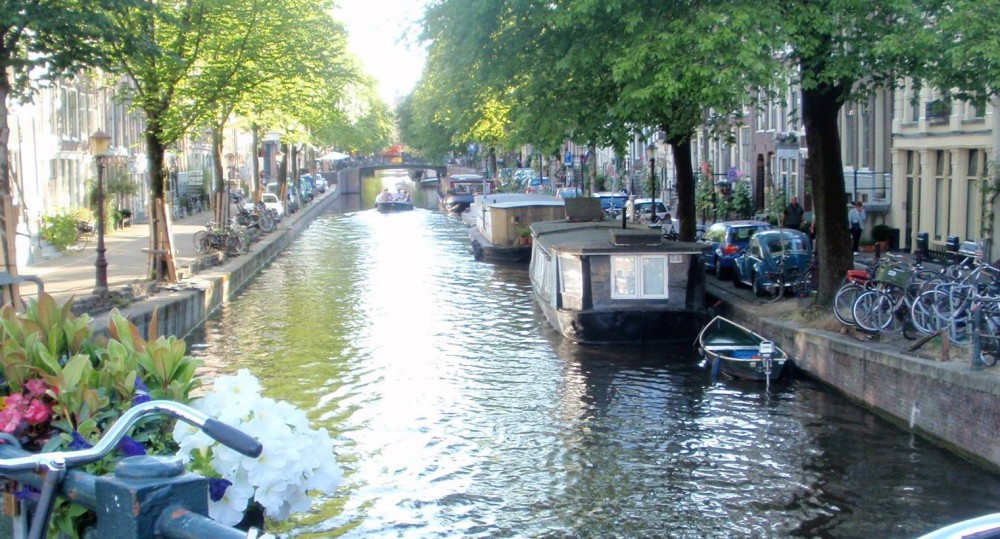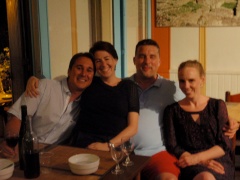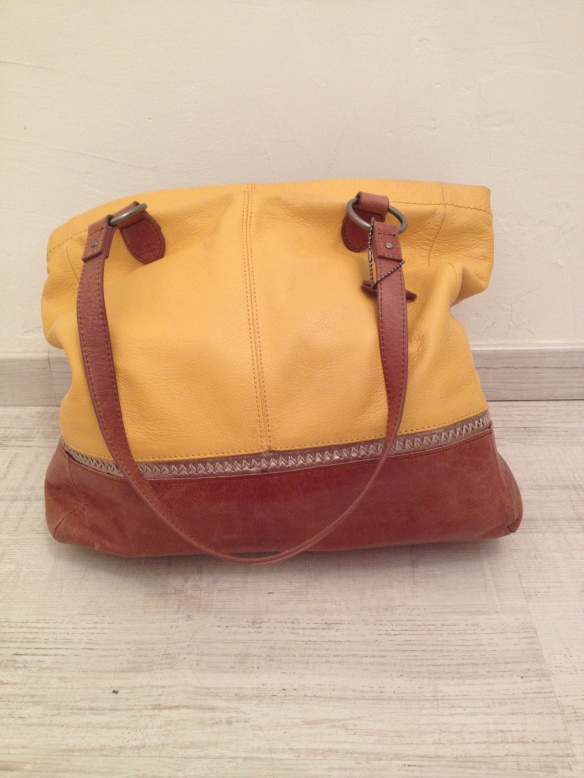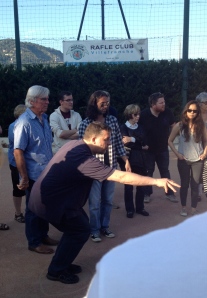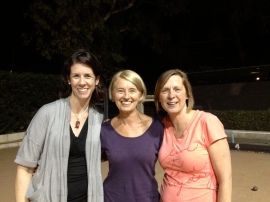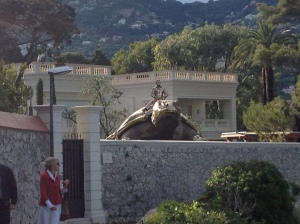When I was planning this month in France, one place I really wanted to see was Marseille. It is the 2013 European Capital of Culture, and while I know it has a reputation as a rough-and-tumble city, I was curious. Plus, Rick Steves said not to miss it, and Rick never lets me down.

Notre Dame and the Old Port from Fort St. Jean.
I asked a few of the instructors at the Institut for their thoughts, since I was likely going to be traveling there alone. The responses were interesting. Half told me it was dangerous and dirty, and the others told me it was wonderful. For a few days I considered skipping it, but I knew I would regret missing the opportunity to make up my own mind.
The reaction of my professors proved to be representative of the general attitude towards Marseille. Let’s just say, no one is lukewarm about Marseille. Folks either love it or they hate it.
Me? I fall squarely in the former camp. Marseille blew me away.
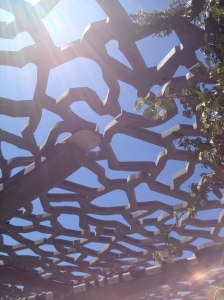
The terrace roof at the new MuCem, designed by Rudy Ricciotti
Yes, I was there for all of 6 hours, and I stayed in the touristy areas. And I’m not naïve enough to think that it is free of crime, or danger, or violence. But what I saw was spectacular: a city that is vibrant, alive, diverse, and just humming with energy. And the city, in turn, energized me. I felt a charge just walking around, like I was the smallest part of something wonderful that was just on the verge of happening.
In the small plaza opposite City Hall, I found several garden plots, each bordered with quotes about Marseille. “YES!”, I thought, when I saw (and photographed) my favorite of them. I’ve shared it below, both in French and with my attempted English translation.
“Allez à Marseille. Marseille vous repondra. Cette ville est un leçon. Attentive, elle écoute la voix du vaste monde et, fort de son expérience, elle engage, en notre nom, la conversation avec la terre entière.”
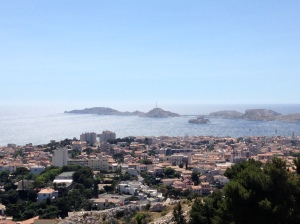
Chateau d’If and the city from Notre Dame.
“Go to Marseille. Marseille will answer you. This city is a lesson. Carefully, she listens to the voice of the wide world and, with that experience, she engages, in our name, in conversation with the entire world.”
Given what I’d heard from others, I sort of expected to have a definitive reaction to Marseille. The strength of my reaction surprised me a bit. I think I’ve used the expression “vraiment formidable!” more in the past two days than is reasonable for a non-native French speaker. And at least one of my pals at the Institut has rolled his eyes and said, “Vous parlez encore de Marseille??”.
What I’m really trying to talk about, though, is the importance of making up your own mind. I nearly lost the chance to do that because I was letting the experience, prejudices, and assumptions of others dictate what I was going to do. Obviously I’m not advocating recklessness; I was very aware and cautious while in the city. But some things and some places you need to see – and smell, and feel – for yourself, first-hand and unfiltered. Marseille reminded me of that. At the same time, she reminded me of my competence, my common sense, and my sense of adventure.
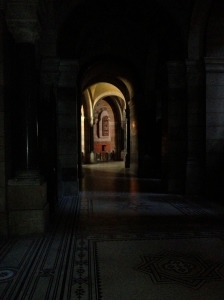
Interior of Cathédral la Major.
In a strange way, I felt compelled to get Marseille this month, as if it was waiting for me. A ridiculous notion, really, but one that was reinforced at every turn, as I stumbled on Arab markets, street-corner musicians, beautiful churches, helpful people, spectacular views, and quiet, intimate moments. I feel richly rewarded for having made the journey. And if I’ve become a bit of an evangelist for Marseille, well, it seems like the least I can do in return for what Marseille gave me.
